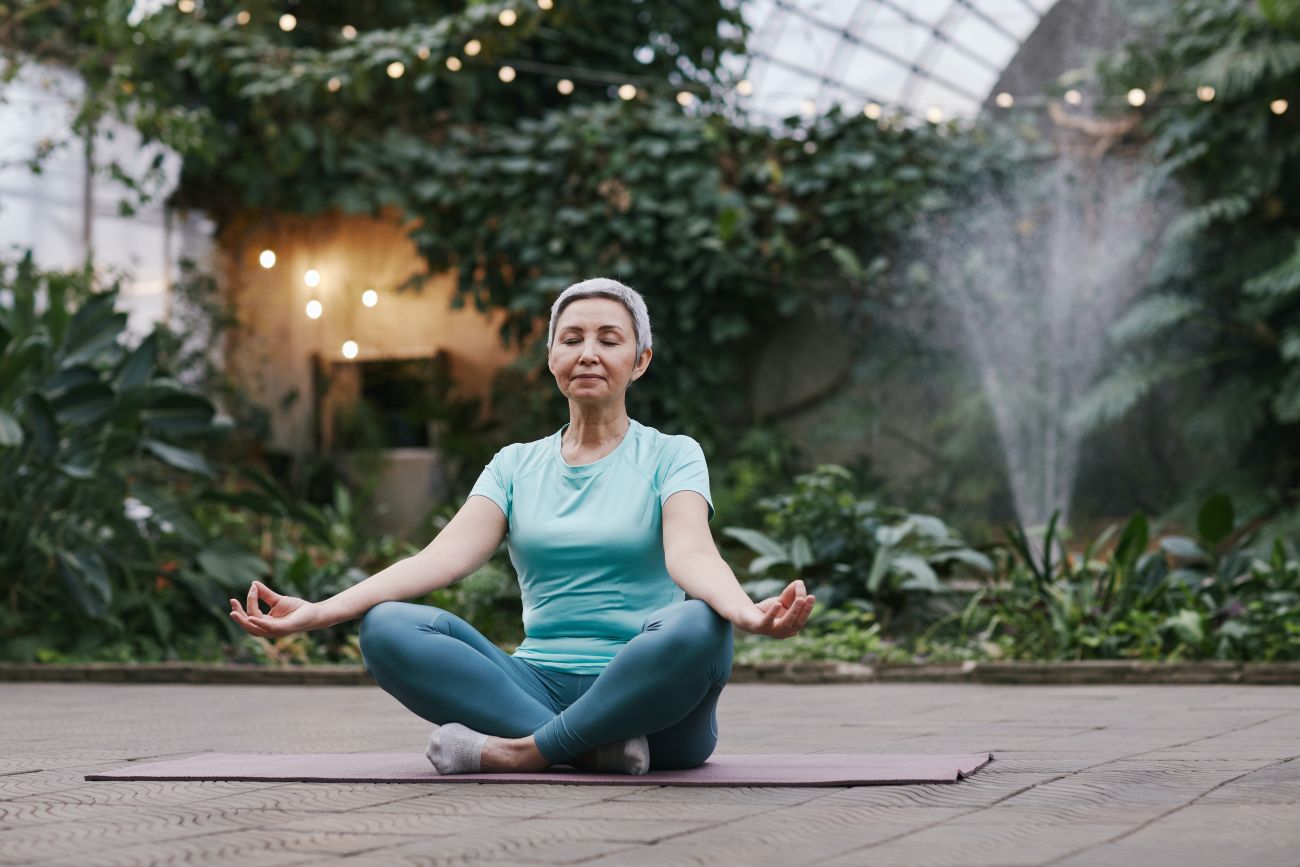Parkerhill Wellness Centre
How to Improve Your Overall Health and Well-Being

If you're looking to improve your overall health and well-being, you're in the right place. Here, we'll explore some of the best ways to achieve and maintain good health. From eating a balanced diet to getting enough sleep, we'll cover all the bases to help you live your best life.
1. Start with a Healthy Diet
The Importance of a Balanced Diet
One of the most important things you can do for your overall health and well-being is to eat a healthy, balanced diet. This means consuming a variety of foods from each of the food groups: fruits, vegetables, grains, protein, and dairy. Eating a balanced diet can help you maintain a healthy weight, reduce your risk of chronic diseases, and provide your body with the nutrients it needs to function properly.

Foods to Avoid
To maintain a healthy diet, it's important to avoid certain foods that are high in calories, sugar, and unhealthy fats. These include:
Processed foods
Fast food
Sugary drinks
Foods high in saturated and trans fats
Tips for Eating Healthy
To make healthy eating a habit, try the following tips:
Plan your meals in advance
Cook at home more often
Make half your plate fruits and vegetables
Choose lean proteins like chicken, fish, and beans
Limit your intake of processed and sugary foods
2. Get Active
Benefits of Exercise
In addition to eating a healthy diet, getting regular exercise is also important for your overall health and well-being. Exercise can help you maintain a healthy weight, reduce your risk of chronic diseases, improve your mental health, and boost your energy levels.
Types of Exercise to Try
To get the most out of your exercise routine, try to include a variety of different types of exercise, including:
Cardiovascular exercise, such as running or biking
Strength training, such as weight lifting or bodyweight exercises
Flexibility and balance exercises, such as yoga or Pilates
How to Make Exercise a Habit
To make exercise a habit, try the following tips:
Schedule your workouts in advance
Find an exercise buddy for motivation and accountability
Set achievable goals
Start with small, manageable workouts and gradually increase intensity and duration
3. Prioritize Sleep
The Importance of Sleep
Getting enough sleep is crucial for your overall health and well-being. Sleep helps your body repair and recharge, and lack of sleep can lead to a number of negative health outcomes, including weight gain, reduced immune function, and decreased cognitive function.
Tips for Getting a Good Night's Sleep
To get a good night's sleep, try the following tips:
Stick to a regular sleep schedule
Create a relaxing bedtime routine
Make your bedroom comfortable
Avoid caffeine and alcohol before bedtime
Turn off electronics at least an hour before bed
4. Manage Stress
Understanding Stress
Stress is a normal part of life, but chronic stress can have negative effects on your physical and mental health. It's important to manage your stress levels to maintain your overall health and well-being.
Tips for Managing Stress
To manage stress, try the following tips:
Practice relaxation techniques such as deep breathing or meditation
Exercise regularly to reduce stress
Prioritize self-care activities such as taking a warm bath or reading a book
Seek support from friends or a mental health professional if needed
5. Build Healthy Relationships
The Importance of Social Connections
Having strong social connections is important for your mental health and well-being. Social support can provide a sense of belonging and can help you cope with stress and adversity.
Tips for Building Healthy Relationships
To build healthy relationships, try the following tips:
Make time for social activities with friends and family
Join a club or group based on your interests
Practice active listening and effective communication in your relationships
Be open to meeting new people and forming new relationships
6. Practice Mindfulness

What is Mindfulness?
Mindfulness is the practice of being present and fully engaged in the present moment. It can help you reduce stress, improve your mental health, and enhance your overall well-being.
Benefits of Mindfulness
Some of the benefits of practicing mindfulness include:
Reduced stress and anxiety
Improved emotional regulation
Increased self-awareness
Enhanced focus and concentration
How to Practice Mindfulness
To practice mindfulness, try the following techniques:
Mindful breathing exercises
Mindful meditation
Mindful movement practices, such as yoga or Tai Chi
7. Avoid Unhealthy Habits
Smoking
Smoking is one of the most harmful things you can do for your overall health and well-being. It can lead to a number of negative health outcomes, including lung cancer, heart disease, and stroke.
Excessive Drinking
Excessive drinking can also have negative effects on your health and well-being. It can lead to liver disease, high blood pressure, and increased risk of accidents and injuries.
Drug Use
Drug use can also have negative effects on your physical and mental health. It can lead to addiction, overdose, and a number of other health complications.
8. Conclusion
Improving your overall health and well-being doesn't have to be difficult. By making small changes to your diet, exercise routine, sleep habits, stress management techniques, and relationships, you can enhance your physical and mental health and achieve your best life.
9. FAQs
What are some easy ways to incorporate exercise into my daily routine?
Take a walk during your lunch break
Take the stairs instead of the elevator
Do some stretching or bodyweight exercises while watching TV
Park farther away from your destination and walk
How much sleep should I be getting each night for optimal health?
Adults should aim for 7-9 hours of sleep each night
What are some healthy foods I should be including in my diet?
Fruits and vegetables
Whole grains
Lean proteins such as chicken, fish, and beans
Low-fat dairy products
How can I manage stress at work?
Take breaks throughout the day to stretch or take a walk
Prioritize your workload and set achievable goals
Practice relaxation techniques during your breaks, such as deep breathing or meditation
What are some ways to build and maintain healthy relationships?
Make time for social activities with friends and family
Practice active listening and effective communication
Be supportive and empathetic towards others
Express gratitude and appreciation for your loved ones.